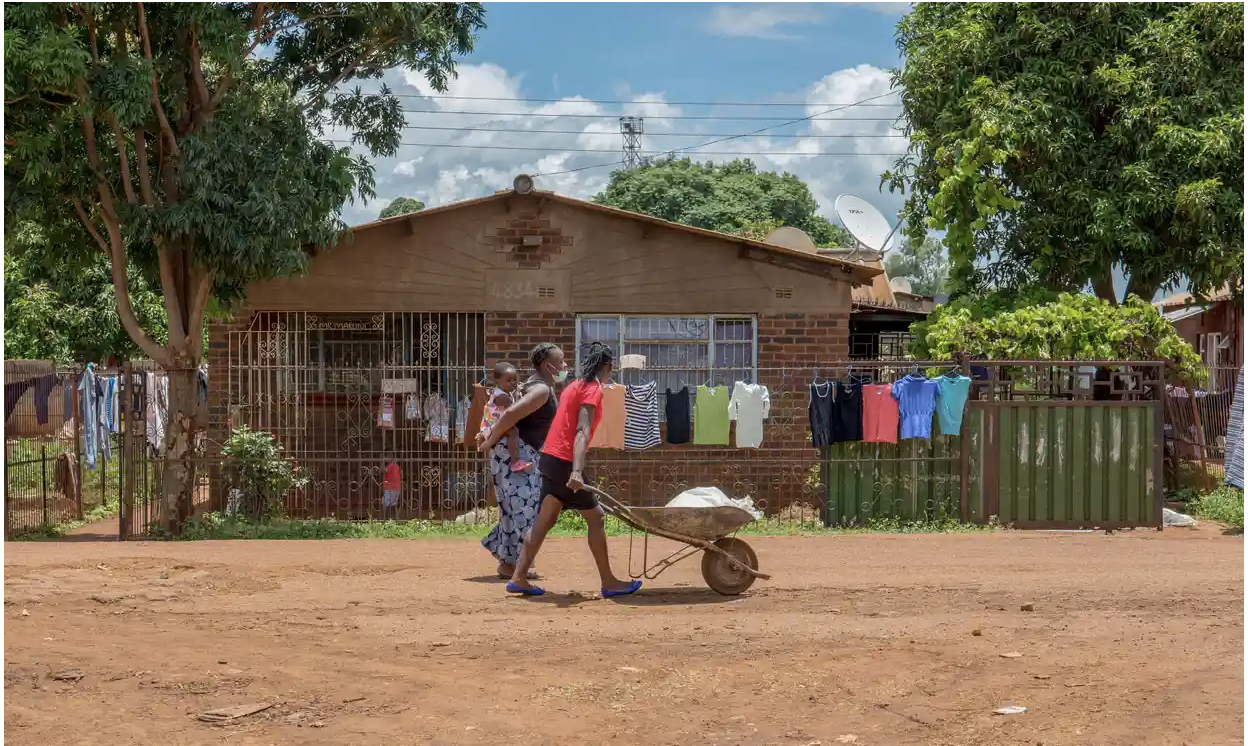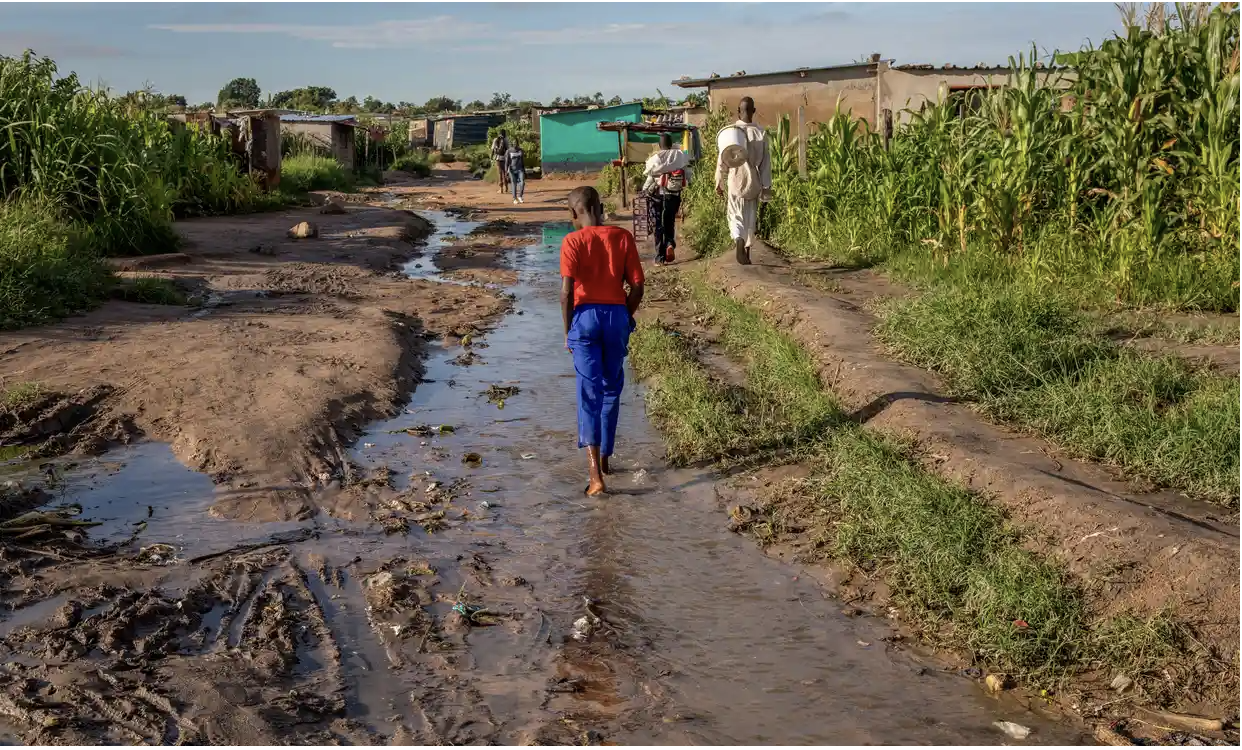
Women in Kuwadzana, Zimbabwe, a town overrun with drug problems. Photo: Cynthia Matonhodze – The Guardian
In Zimbabwe, economic hardship and the outbreak of the COVID-19 pandemic have contributed to the country’s growing drug problem. Given astronomically high rates of unemployment (approximately 90 percent), drug use serves as a much needed escape. Still, economic conditions do not seem to be getting better; job prospects are shrinking due to the pandemic. Amongst the youth, peer pressure drives children and young teens to begin using drugs. The influx of COVID-19 patients and drug patients has made it difficult for the crumbling healthcare infrastructure to keep up.
According to most locals, methamphetamine, among other drugs such as a codeine-based cough syrup, is brought into the country by smugglers from South Africa — the Zimbabwean government doesn’t police the entirety of the border. One gram of crystal meth costs 12 dollars, making it incredibly expensive for the average person. Codeine syrup, whose price varies from region to region, remains unaffordable as well. Alcohol, on the other hand, sells for far cheaper and is often used to supplement these more addictive drugs. Yet, despite the steep cost, Zimbabweans save up for the opportunity to purchase these goods.
The problem is particularly bad in Zimbabwe’s rural regions, where it is not uncommon to see addicts struggling on the streets and individuals selling methamphetamine. Unfortunately, substance use continues to rise even amongst young people, who seek to forget about poverty and who are out of school due to the COVID-19 pandemic. In cities such as Harare, drug addicts have developed a unique slang when referring to methamphetamine and selling the drug.

A shanty town outside Harare, Zimbabwe, where drug use remains rampant. Photo: Cynthia Matonhodze – The Guardian
The government, nonprofits, and religious officials have collaborated in order to combat the ongoing problem. In 2019, President Emmerson Mnangagwa called for a meeting with the government’s stakeholders in order to address the problem. Soon after, Zimbabwe’s Deputy Director of Mental Health Services Dr. Chido Rwafa said that the government, in isolation, could not solve the problem. Several churches in the area have begun to offer counseling services in order to ease the burden on the government. Nonprofits and other religious officials have decided to conduct training programs to warn students on the dangers of drug use.
One particularly effective method has been the arts movement — the opportunity to participate in events such as spoken word and plays has given young people a healthy alternative to drug use. One theater, the Ngoma Yorira Theatre Association, pays youth struggling with drug addiction to stop using drugs and participate in the plays.
COMMENTS
We need to be careful of these unqualified rehabilitation outfits. Many are run by con men, religious nutters, or cults who have zero medical qualifications. Zimbabwe is wide open to these shysters are we have little or no enforced regulations or control and parents and addicts are being fleeced left right and centre. In the U.S. at the present time many of these so called rehabs are being raided by police as most are manned by persons with no qualifications other then that they claim that they are so called ‘recovered addicts’ and their counseling qualifications are no more then something issued by dubious churches. Institutions of this nature need to be run by those who are medically qualified not con artists thank you very much.